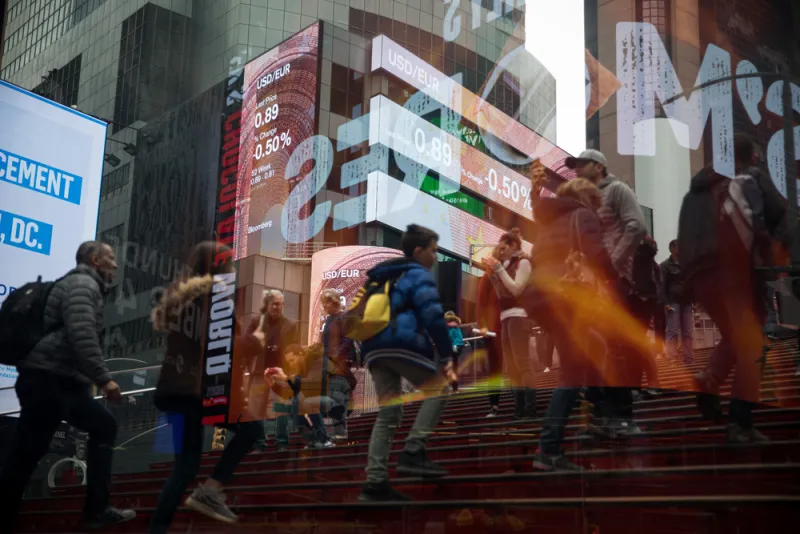When Chris Drose launched Bleecker Street Capital, a short activist hedge fund, in September of 2021, he knew it was a risky move. After all, the short squeeze of GameStop was still fresh in investors’ minds, and many were proclaiming the death of short sellers as a foregone conclusion.
But nearly two years later, Bleecker Street is on a roll. So far this year, Drose’s firm has had the best-performing short among 65 new major short activist campaigns, according to a review of short activist calls in the first six months of 2024 by Breakout Point, which tracks the industry.
Bleecker Street soared to the top of the list with its short call on LuxUrban Hotels, whose shares had declined some 95 percent since the report was published in January through the end of the first half.
The short seller offered a scathing critique of Miami-based hotel lessee and operator LuxUrban, which went public in August 2022 and raised $13.5 million in the IPO. In addition to what Drose called “toxic financing arrangements,” the hotel operator has also been hit with a number of lawsuits for nonpayment of rent, “any number of which could blow a hole in its balance sheet.”
Bleecker Street also revealed a number of eyebrow-raising actions by LuxUrban. For example, its report disclosed that the company’s announcement of a lease for the Royalton Hotel in New York was suspect. “The owner of that building told us LuxUrban had not actually signed the lease,” the report stated. “In one instance, we were told by an executive at a large hotel operator that LuxUrban announced the acquisition of a hotel from a bankruptcy receiver, but that receiver wasn’t even aware of the purported acquisition when LuxUrban announced it in a press release.” (After the Bleecker Street report was released, LuxUrban said the Royalton deal had not gone through.)
The short activist also took aim at management, especially LuxUrban founder and CEO Brian Ferdinand, who had previously settled fraud charges brought by the Securities and Exchange Commission regarding accounting issues at Liquid Holdings, a former company he headed that went bankrupt in 2015.
LuxUrban’s shares didn’t collapse immediately following Bleecker Street’s report, but they began to slowly deteriorate as the bad news piled up. “This was a hotel company that was operating 16 hotels, and four of them were in foreclosure proceedings because they weren't paying the rent. So they tried to sweep a lot of things under the rug, and I think that stuff finally caught up with them,” Drose told Institutional Investor.
Shortly after Bleecker Street’s report was issued, LuxUrban was fined $1.2 million by New York City for operating 70 illegal short-term rentals in Manhattan and Brooklyn, and Ferdinand stepped down as CEO. Then in March, LuxUrban disclosed nearly $41 million in losses for the quarter. The company is now on its second CEO following Ferdinand’s departure.
Meanwhile the stock has fallen from around $5 per share on Jan. 16, the day before Bleecker Street’s report, to less than 20 cents a share. LuxUrban did not return a request for comment.
“When there's a light shined on some of these companies, they really don't hold up to scrutiny,” said Drose, who covered his short after the stock went below $1 per share, which happened in the middle of April.
A spokesman for LuxUrban said in a statement, “In many ways, LuxUrban is a different company than when this report was published. Over the last several months, we have added significant industry, operating, and public company experience to the management team and Board of Directors. This includes a new chief executive officer, new chief financial officer, and new chairman of the board. We continue to address a variety of legacy issues, while at the same time focusing on creating and deploying initiatives designed to increase long-term shareholder value.”
LuxUrban is one of three stocks Bleecker Street has written on this year. But the portfolio contains a total of 30 shorts, including many it hasn’t called out publicly. Drose said that the firm is now launching a single idea short activist vehicle that will maintain the short position “for a longer duration.”
That might work well with the slow burn that is common with the short targets these days. “Itseems the days of 30 percent plus immediate declines are gone, and most reports usually record little initial volatility,” Breakout Point said in a release announcing the top short campaigns of 2024. “The stocks usually fall on earnings or news supporting the bearish thesis or simply drift lower over the course of a few months.”
Breakout Point noted that the activist campaigns it follows are outperforming the market by more than 20 percent. On average, Breakout Point calculated that targeted stocks were down 11.3 percent following the reports. “The environment is also likely helped by [higher] interest rates, which make it harder for companies to obtain cheap financing,” it added.






